A look at biggest gatherings ahead of Pope Francis’ Manila Mass
Philippine officials estimate that as many as 6 million people will attend the Mass that Pope Francis celebrates today (Jan 18) in Manila’s Rizal Park. That would be a record for any pope, but not for any event. A look at some of the biggest gatherings of humanity:
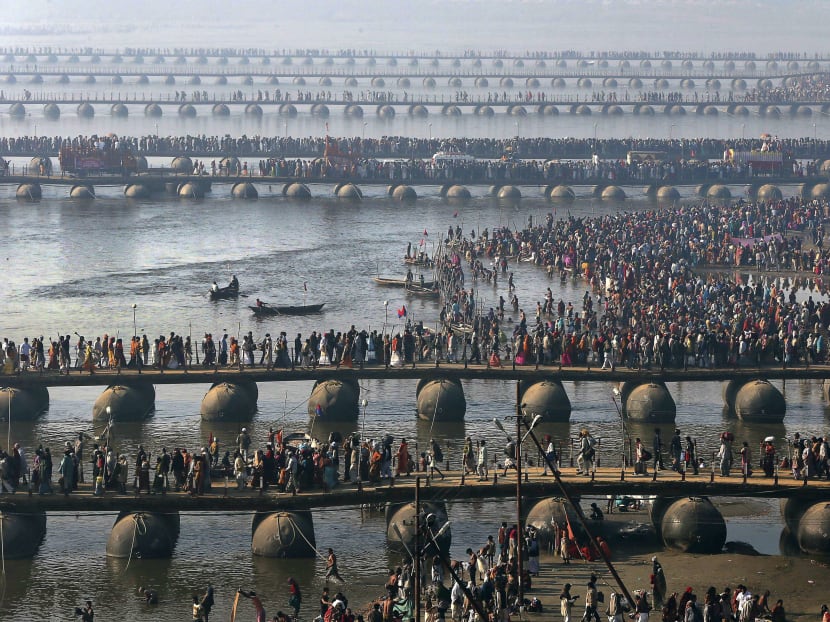
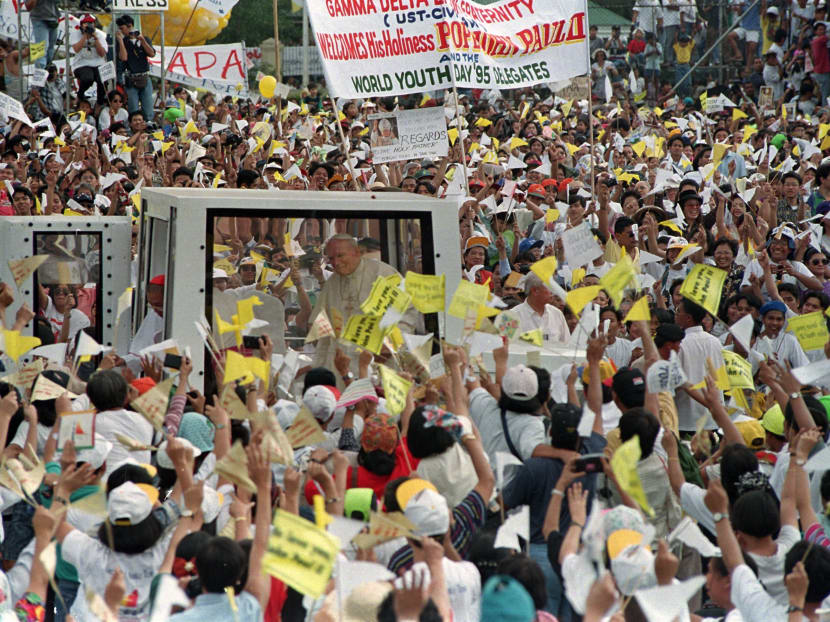
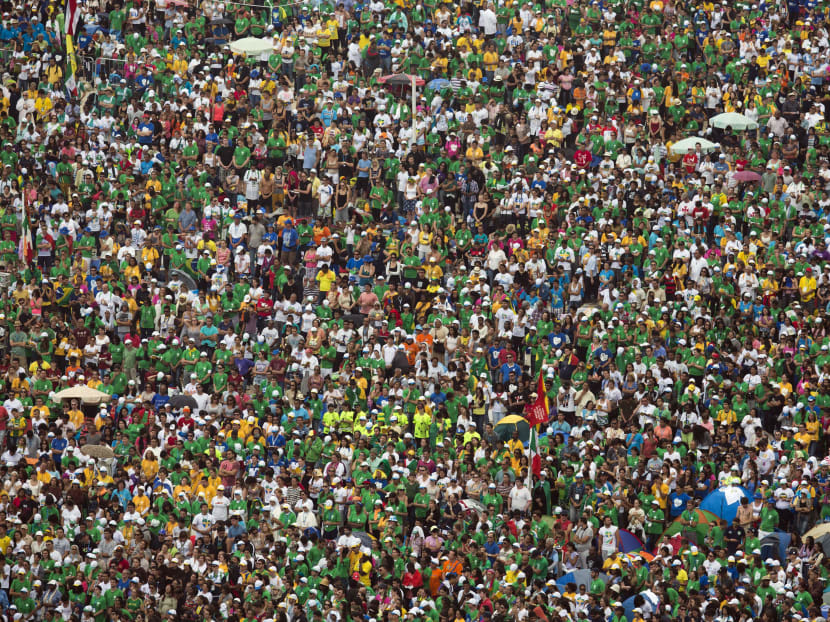
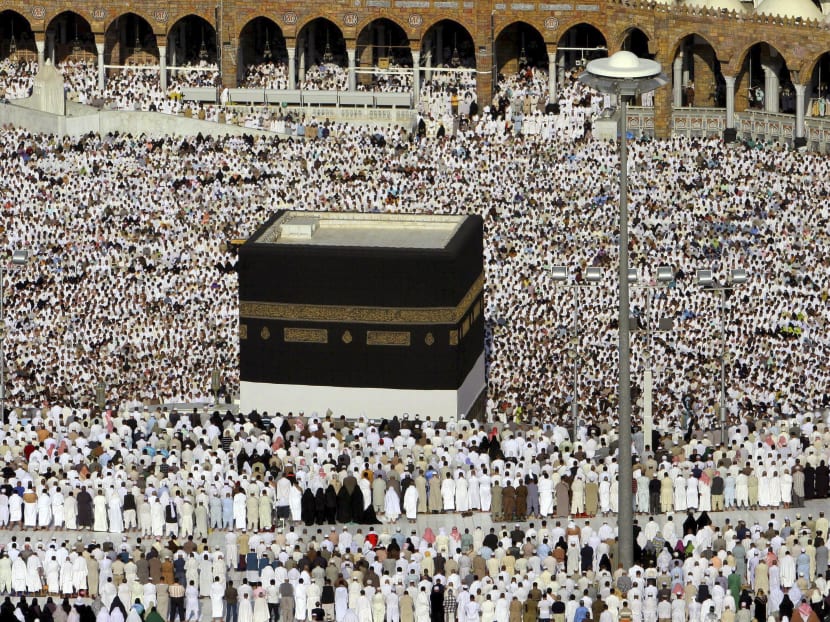
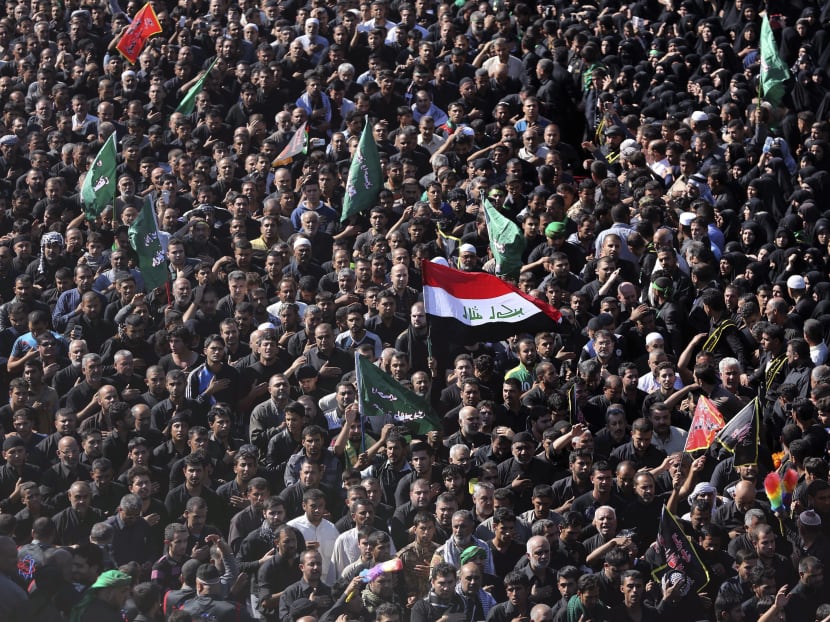
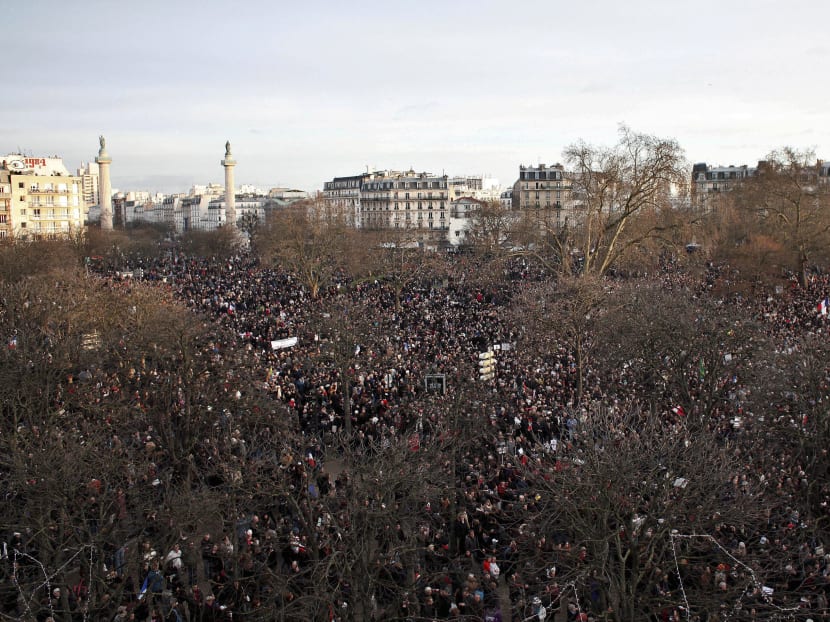
Philippine officials estimate that as many as 6 million people will attend the Mass that Pope Francis celebrates today (Jan 18) in Manila’s Rizal Park. That would be a record for any pope, but not for any event. A look at some of the biggest gatherings of humanity:
INDIA
Once every 12 years in northern India, tens of millions of Hindus gather in the city of Allahabad for what is thought to be the largest religious meeting in the world — the Maha Kumbh Mela, or Big Pitcher Festival.
The 55-day gathering is held at the confluence of the Ganges, Yamuna and the mythic Saraswati rivers, and celebrates the victory of gods over demons in a battle for nectar that would grant them immortality. As one of the gods fled with a pitcher of the nectar, a drop is said to have spilled on the spot.
The last gathering in 2013 drew from 30 million to 80 million people, depending on various estimates, who camped on the river banks in makeshift shanties and tents.
Participants believe a bath in the river on one of the festival’s auspicious bathing days can rid them of their sins, and at the height of the gathering the river often becomes a mass of bodies — men and their sons stripped down to their underwear, veiled women wading in the water, ash smeared ascetics wearing marigold garlands and nothing else.
The gathering is not without hazards, though. Families are easily separated, and children often go missing. At least a dozen films have been made about people vanishing in the Kumbh crowd, where volunteers and officials are often seen shouting names out through loudspeakers to help families reunite.
Stampedes are also frequent. In 2013, at least 37 people were killed in a crush at a train station after railway officials announced a last-minute change in platforms.
There are also several smaller Kumbh Mela gatherings elsewhere in India, each drawing its own mass of millions.
PHILIPPINES
The turnout for Pope John Paul II’s Sunday Mass on Jan 15, 1995, in the Philippine capital’s Rizal Park — the same venue where Pope Francis will appear today — is considered the largest for the head of the Roman Catholic Church. Vatican officials estimated the crowd at between 2 million and 5 million people, including hundreds of thousands who packed streets kilometres away from the park. Many were perched atop cars and climbed trees for a view of the pope.
So dense was the crowd that the pope abandoned plans to travel from his residence by car and was flown instead by helicopter.
At the previous record-setting Mass, 2 million people turned out in 1979 at John Paul’s hometown of Krakow for his first visit to Poland after his elevation to the papacy.
A Vatican spokesman said the church had planned for a crowd of 1 million. But shortly after dawn, officials raised the estimate to 2 million and later said as many as 5 million were trying to reach the site.
Projections of 6 million people today may be hard to match. Rizal Park covers an area of 143 acres or 560,000 sqm, which would mean one person per square foot.
RIO’S COPACANABA BEACH
Vatican and Brazilian officials said 3.7 million people gathered on July 28, 2013, to see Pope Francis celebrate World Youth Day on the iconic Copacabana beach. But number crunchers disputed the figure, saying the real number was not even half that.
The research director of Datafolha, one of Brazil’s top polling and statistic firms, said that based on the size of the crowd area and reasonable density estimates, turnout was more likely between 1.2 million and 1.5 million people.
By the Vatican’s count, the crowd density throughout the entire area — about 497,000 sqm — would have been 7.4 people per sqm which wouldn’t allow for movement of any kind, let alone the jumping, arm waving, singing and dancing seen at the papal events. Video and photos of the crowd also showed that while it was packed close to the gigantic altar built on Copacabana beach, the faithful thinned out along the 4km-long beach.
HAJJ
Islam’s annual hajj brings around 3 million to 5 million pilgrims from around the world to Mecca, the faith’s holiest sites, to perform nearly a week of rites. It’s a pilgrimage that all able-bodied Muslims are required by Islam to carry out, if they can.
It is also a logistical nightmare. The population of a mid-sized city must move en masse at more or less the same time to various sites stretching about 15km apart in the desert hills around Mecca.
Lethal stampedes have occurred. In 1990, more than 1,400 were killed in a crush in a pedestrian tunnel. One ritual in particular — the symbolic stoning of the devil, when pilgrims pass by three walls to pelt it with stones — has seen several stampedes, the deadliest in 2006, when nearly 350 were killed. Then there’s fires: More than 300 were killed in a 1997 fire that broke out in a tent city housing pilgrims.
In recent years, however, Saudi Arabia has overhauled the infrastructure at the sites for crowd management, creating giant ramps to give greater access and avenues that keep foot traffic going only one direction. The 2006 stampede was the last major deadly incident.
ASHOURA
Up to 3 million Shiite pilgrims every year make their way on foot to a gold-domed shrine in Karbala, about 90km south of the Iraqi capital of Baghdad, to commemorate the 7th century battle in which Prophet Muhammad’s grandson, Imam Hussein, died. The processions in which some pilgrims ritually whip their bodies with chains and knives in grief, drenching themselves in blood, have been marred by deadly suicide attacks blamed on Sunni extremists who see Shiites as heretics.
PARIS RALLY
At least 1.2 million to 1.6 million people streamed through the streets of Paris on Jan 11 to mourn the victims of the deadly attacks on the satirical newspaper Charlie Hebdo, a kosher supermarket and police officers. Intense security blanketed Paris as more than 40 world leaders headed the somber procession in a show of unity against terrorism, with throngs rivalling those that followed the liberation of Paris from the Nazis. AP






